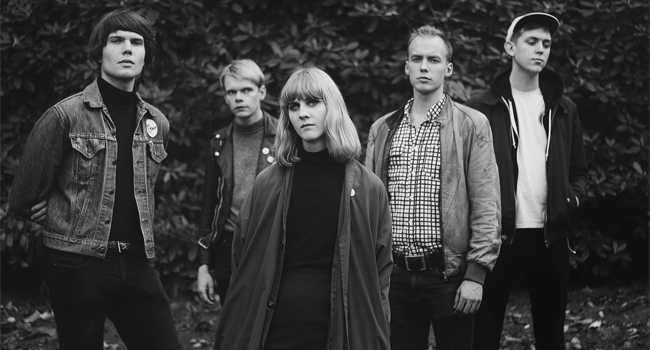“I was reading up on jackalopes and learned that they can mimick the sound of anything perfectly, and part of their myth is that they would sing back the cowboy songs that the cowboys would sing around the campfire at night,” so says Clinton Herrick, the lead figure and progenitor of the Portland, Ore., folk collective Jackalope Saints.
The myth seems especially fitting given the bands rootsy inclinations: embedding a bevy of acoustic guitars as foundation under accents of fiddle and mandolin. With a lack of percussion, the band seems ideally suited for the festival crowd, or the exploding retro-folk genre that more derivative acts such as Mumford and Sons are shilling.
Of the handful of tracks the Jackalope Saints have put out as a sampler of their intricate and soulful potential, Herrick’s guitar and voice provide the base.
I come up with the structure of the song. … I would compare it to a coloring book: I bring the colorless picture, and they bring the crayons to make it pop!”
Herrick’s estimation isn’t far off, as the basic guitar melodies are nothing out of the ordinary outside of the Laura Marling/Gillian Welch sect. But what makes the band less pop-oriented and more grounded in an old-time rootsiness are the fiddle accents, provided by recently engendered Saint Heather Roberts. On rustling tune “His Shiney New Speed Boat, a track that more or less could be defined by Herrick’s pleading verse and a chug-jug guitar, the fiddle plays a prominent role in messing the finely combed decor up a bit. It’s clearly a function of the communal aspect of the band, but the fiddle illustrates an individual doing the best of her ability to add to the whole. Part of the appeal of such a collective, as Herrick claims Jackalope Saints are, lies in the ability for individual members to play key roles in the genesis of great songs: a fiddle here, an oboe there, maybe even a mouth harp when appropriate (and “Allie Jean” is certainly appropriate). Broken Social Scene worked the same way, incorporating members where they could contribute, with exclusion left out of the equation.
But Herrick’s contributions are many. The Jeff Tweedy to the group Wilco, Herrick provides the skeleton to each of the songs, many a time dictating tempo and melody with ear-worm melodies that recall classic tropes.
While his voice doesn’t necessarily reverberate with a heavy soul, the slightly raspy tone Herrick evokes is appropriate for the setting, exemplified perfectly in the off-tempo ditty “High Troubles.” This rasp allows the lament to flow through the keys and fiddle, instead of making “Troubles” a merely vocal affair. Herrick’s favorite record, Paul Simon’s Graceland, hangs over the proceedings in a subtle way, making something alive from pieces that might otherwise not be. The guitar lines the Jackalopes play with or the vocal melodies Herrick croons are never the revolutionary sort, but the way they play with the other members of the band shines through.
Jackalope Saints, following in the footsteps another primarily string outfit The Avett Brothers, seem destined for the festival set. If and when they make it, Herrick’s rabble-rousing speed and messy emotion will be instant hits. Songs such as “Allie Jean” or “She Made This Home” are focal points of a ribald live set, and one that even today probably shouldn’t be missed. While their name may give the distinct impression that they’re repeating information back to the listener, Jackalope Saints are doing anything but. They’re creating their own musical narrative, and it’s one building upon the past, gearing for the future.



